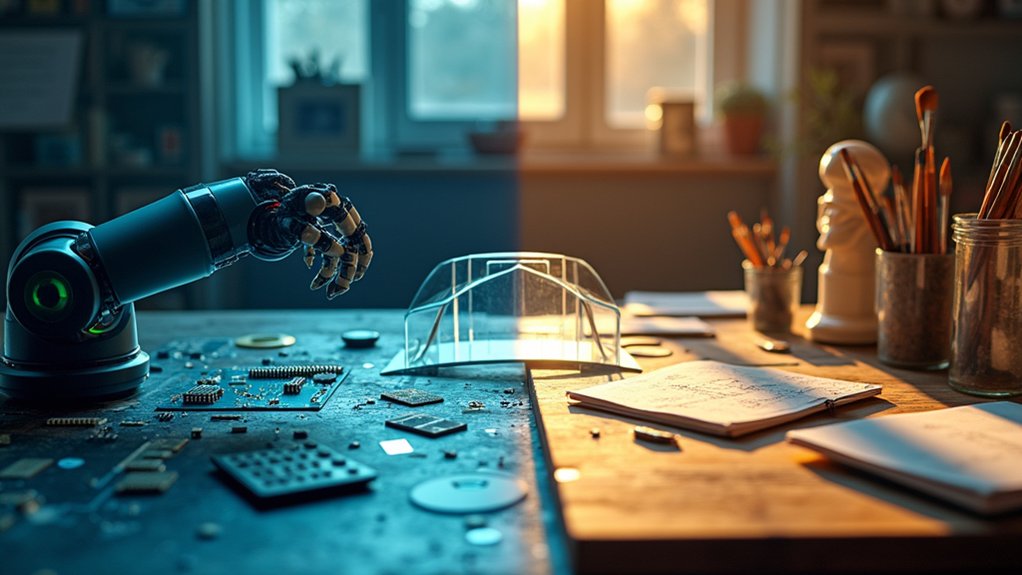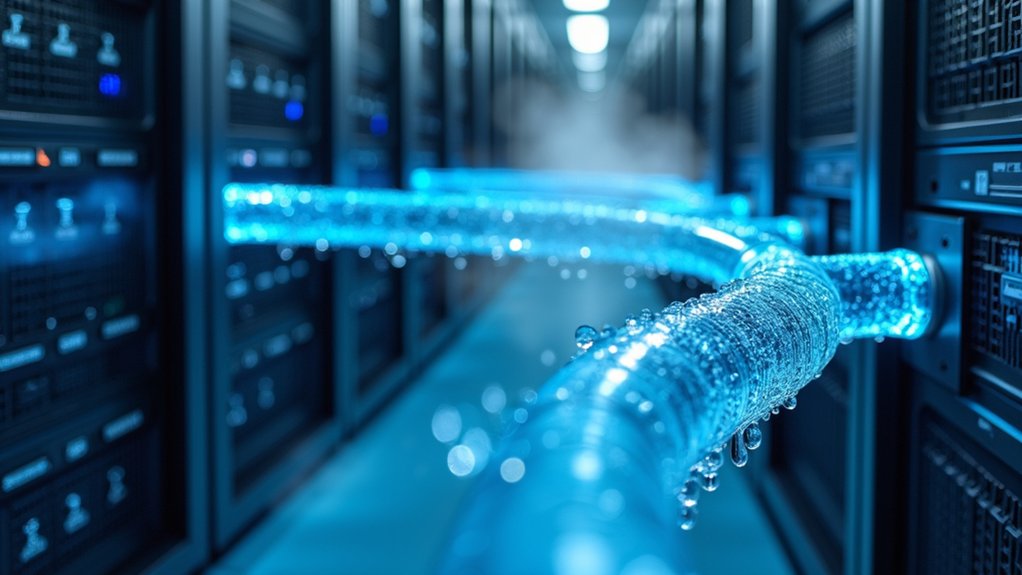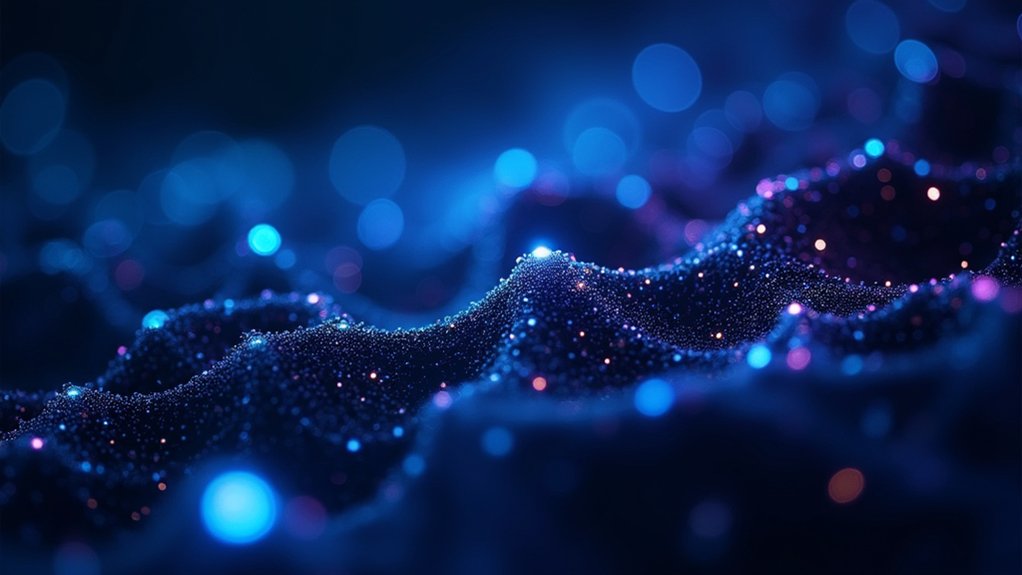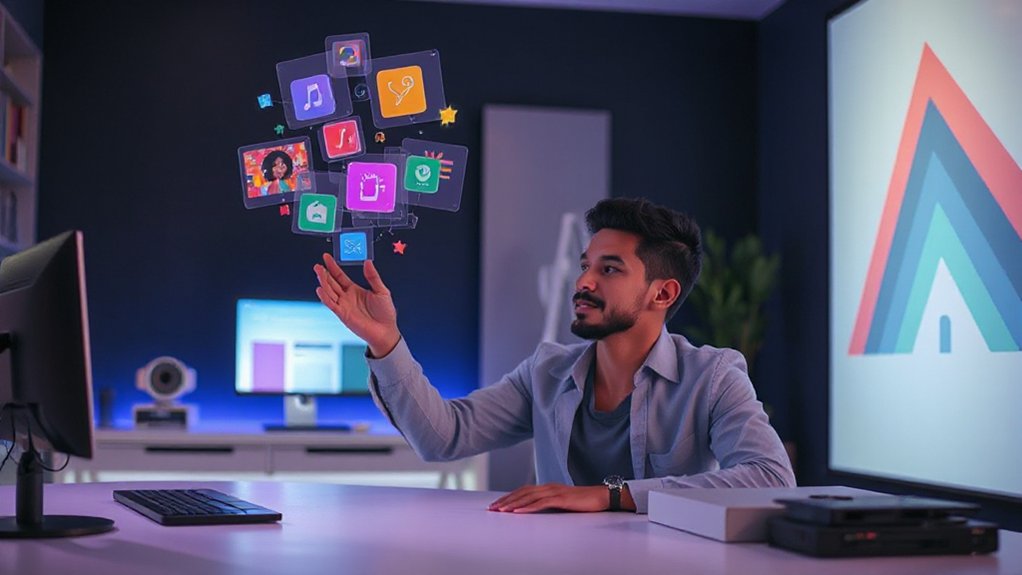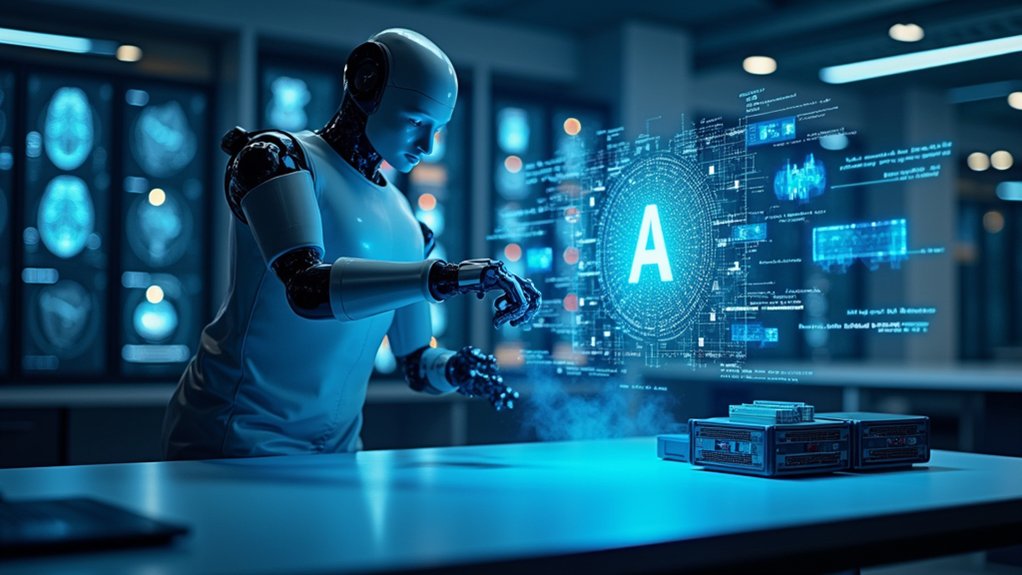AI won't replace humans because it lacks true understanding, emotional intelligence, and moral judgment. While AI processes data quickly, it can't grasp context, generate original ideas, or adapt to unexpected situations without reprogramming. It struggles with complex problem-solving and ethical dilemmas that require human insight. Technical limitations also exist, as AI systems need constant maintenance and resources. The human touch remains essential in healthcare, education, leadership, and many other fields.
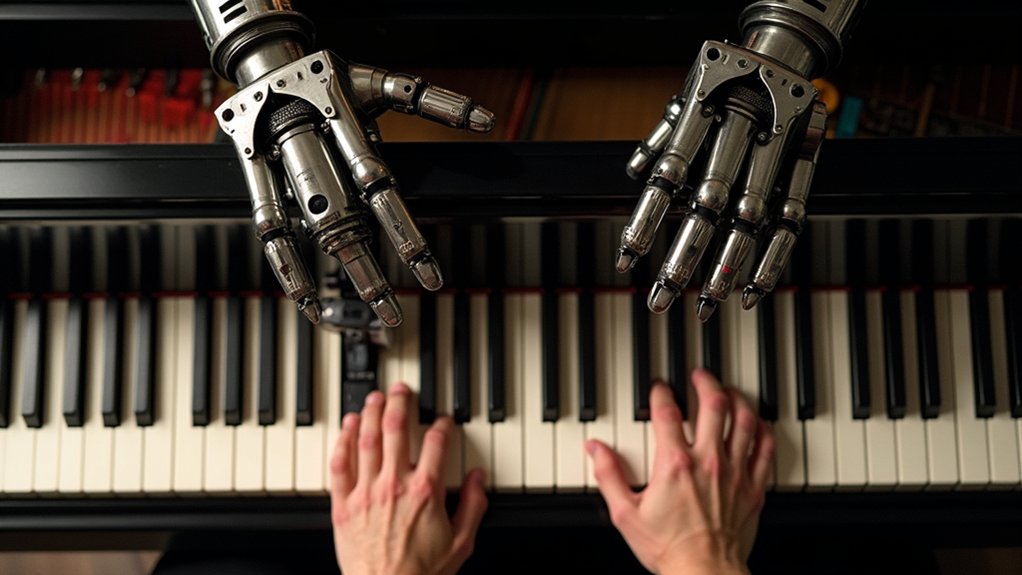
While AI technology continues to advance at a rapid pace, it still falls far short of truly replacing humans in many essential areas. These smart computer systems process huge amounts of data, but they don't actually understand what they're analyzing. They lack the ability to grasp context or subtle meanings that even children can easily recognize. AI also can't feel emotions or show empathy, which are key parts of being human.
When it comes to creativity, AI has major limitations. It can only generate content based on what it's already seen in its training data. It can't come up with truly original ideas or have those "aha!" moments that lead to breakthrough innovations. AI works within strict boundaries and can't think in abstract ways like humans do when solving complex problems.
Ethical decisions pose another challenge for AI systems. They can't make moral judgments that require understanding complex values and societal norms. AI has no conscience and can't weigh the deeper impacts of choices in the way humans naturally do. It simply follows its programming without true ethical reasoning.
AI also struggles with adaptability. When faced with new or unexpected situations, AI often fails. Humans can easily transfer skills from one area to another and improvise solutions. AI needs to be reprogrammed or retrained to handle significant changes in its environment. The human ability to navigate uncharted territory allows for solutions that AI simply cannot develop with its data-dependent framework.
The technology itself has practical limitations too. AI systems need constant maintenance, electricity, and internet connections. They're vulnerable to technical failures, hacking, and security issues that require human intervention to fix. Companies that fail to consider responsible implementation may face significant ethical backlash and practical challenges in their AI adoption strategies.
In professions requiring emotional intelligence, such as healthcare, therapy, and leadership roles, the human touch remains essential. Complex decisions in fields like medicine, law, and education still need human judgment and expertise. Young engineers recognize both the scientific value of AI advancement while maintaining realistic expectations about its capabilities.
While AI serves as a powerful tool to assist humans, it lacks the fundamental qualities that make human contribution irreplaceable in society.
Frequently Asked Questions
How Do Humans and AI Collaborate Effectively?
Effective human-AI collaboration happens through clear roles and responsibilities.
Teams must know which tasks suit AI and which need human touch. Good communication is essential, with easy-to-use interfaces and clear explanations of AI outputs.
Workers need training in AI basics and critical thinking. Organizations should measure how well humans and AI work together, gathering feedback and making improvements based on real results.
What Ethical Guidelines Exist for AI Development?
Ethical guidelines for AI development focus on four main areas.
Transparency requires that AI systems explain their decisions clearly.
Fairness demands that AI doesn't discriminate against any groups.
Privacy rules protect personal data through encryption and user control.
Accountability guarantees humans oversee AI systems and can override automated decisions.
These frameworks help guarantee AI technology develops responsibly while minimizing potential harms to society.
Can AI Develop Consciousness or Self-Awareness?
Whether AI can develop consciousness remains a hotly debated topic.
Today's AI systems show complex behaviors but lack true self-awareness. Scientists haven't solved the "hard problem" of consciousness, and there's no consensus on how to create or measure it in machines.
Some experts believe conscious AI could emerge in decades, while others argue it may require biological components humans can't replicate.
No AI has yet proven to be conscious.
How Is AI Affecting Traditional Job Markets?
AI is reshaping traditional job markets in major ways. It could displace 300 million full-time jobs globally, with 14% of workers needing to switch careers by 2030.
Industries like insurance, legal services, and manufacturing are seeing reduced demand for certain roles.
However, AI is also creating opportunities. Companies report it simplifies tasks, and experts predict AI will generate 69 million new jobs by 2027.
What Skills Should Humans Develop to Remain Relevant?
Experts say humans should focus on developing skills that machines struggle with. Critical thinking, emotional intelligence, and creativity are top priorities.
Problem-solving abilities and interpersonal communication remain valuable in changing job markets. Adaptability and continuous learning help workers stay relevant as technology evolves.
The ability to work across disciplines and collaborate effectively with diverse teams gives humans an edge in today's workforce.
